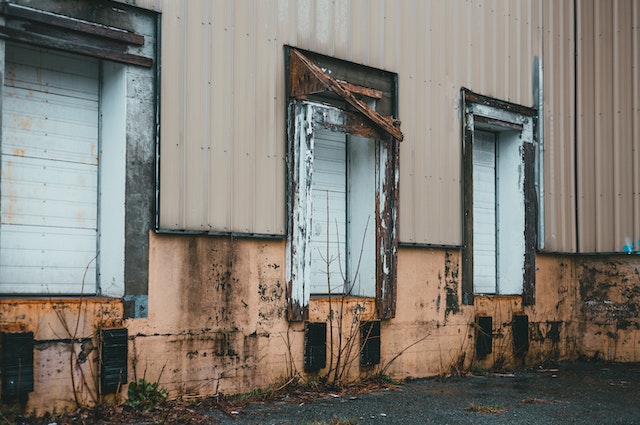Basement flooding can be more than an inconvenience; it can also pose significant structural and health hazards.
As soon as flooding has subsided, or the source is identified, electricity should be switched off and any leaks detected in walls and windows must be checked out for.
Foundation Damage

Basement flooding often results from plumbing leaks or sewer backup, although heavy rainfall can also have an effect. If sewage contamination is suspected as being responsible, be sure to remain away from any standing water until professional help has arrived to properly address it. Doing this may reduce further spread.
Your basement sump pump can help prevent flooding by draining off excess water above ground level to the lawn or storm sewer system, however for it to function effectively it must keep up with groundwater levels around your home and stay powered during stormy conditions; otherwise it may allow excess groundwater into your home through cracks in its foundation or the sump basin, flooding your basement and leading to further flood damage. If one fails, however, groundwater seepage into it could result in flood-like flooding conditions in the basement itself.
Flooded basements may also be caused by stressed water pipes caused by foundation settlement or cracked and corroded by age or inferior workmanship, or hot water tanks which rely on external connections which break and leak, leading to flooding of their own.
Many homeowners are shocked to find out that their homeowner’s insurance covers the cleanup costs associated with a flooded basement and may even provide temporary housing while repairs are completed. If this situation arises in your home, reach out immediately to an inspection team in order to discover what policies cover it.
One way for homeowners to reduce the risk of flooding basements is to landscape their properties to slope away from them rather than towards them, to divert groundwater and sewerage away from foundation walls. Hydro jetting can also help clear away roots that clog sewer lines and can prevent future issues.
Maintaining a well-kept basement will significantly lower the likelihood of flooding. Leaks should be repaired, walls waterproofed, and any electrical outlets exposed to moisture must be taken care of by an electrician before being left exposed in the future.
Mold Growth
According to castle dream construction, a basement waterproofing contractor in Baltimore, basement flooding provides the ideal breeding ground for black mold to flourish. As it flourishes, black mold produces spores which cause respiratory problems; coughing, sneezing and itchy eyes may result from this mold growth; the greater its presence is, the worse these symptoms become.
Mold spores are produced by hyphae, which penetrate porous organic materials such as drywall and wood to decompose them while simultaneously extracting nutrients for their own consumption and emitting volatile organic compounds (mVOCs) into the air. Therefore, after flooding has taken place it is vital that any porous building materials be removed and space cleaned thoroughly sanitized prior to their reuse in new environments.
Basements are especially susceptible to flooding as they’re located underground. When the underground water table rises above floor level of a basement, hydrostatic pressure forces its way in through cracks or any opening it can find. This may happen as a result of sump pump failure, city sewer backup or flooding from groundwater sources.
Once moisture enters a basement, mold spores begin germinating within 24 hours. They’ll start colonizing within 3-12 days if their conditions are favorable: this includes moisture levels, surface conditions they’re growing on and environmental temperatures.
Moisture intrusion and accumulation in homes and buildings are often due to design or construction flaws, improper maintenance and repair work performed improperly, as well as activities of their inhabitants – such as flooding, roof leaks or issues related to drainage or plumbing systems. The most obvious sources include floods, roof leaks or drainage/plumbing issues.
Another potential source of flooding occurs when the soil around your home begins to expand due to an abundance of water – either through heavy rainfall or when the water table rises. As it expands it presses against your foundation and may result in further structural damage if your foundation is weak enough to support such expansion.
To avoid flooding in your basement, it’s essential that your yard slopes away from your house, with gutters and downspouts functioning appropriately and sump pumps being checked frequently in case they malfunction during a rainstorm.
Electrical Damage
Once flooded, basements can become extremely hazardous places. Electrical wiring in contact with flood waters can become extremely hazardous. To ensure your safety in flooded areas, switch off power if possible; wear knee-high rubber boots and gloves when entering any flooded areas to protect yourself from shocks; additionally make sure water level has increased high enough to expose any open circuits safely so that they can be closed off safely.
Further, it’s essential that any rugs and furniture large enough to obstruct access from being removed from the affected area as soon as possible. Carpeting may become impossible to dry out effectively if left in place for too long, ruining it permanently if left on its original foundations. If this process seems daunting due to cost concerns, speak to your home insurance provider to see if they cover this type of restoration effort.
If you can salvage and clean up anything, be sure to maintain a log of what you save or discard – this will aid with insurance claims in the future and serve as documentation of any items lost or damaged. It is also crucial that any items in contact with water be disinfected quickly in order to prevent mold and mildew growth; eight tablespoons of liquid chlorine bleach per gallon of water may help clean surfaces exposed to floodwaters.
By flooding, basement storage units may become vulnerable, including electronics, toys, tools and furniture. Electrical equipment that has become submerged may also become damaged and need to be replaced or repaired; for this reason it is wise to avoid touching any electrical equipment until after having had its system professionally assessed by a qualified electrician.
Health Issues

When we think of basement flooding, our minds usually turn to natural disasters such as hurricanes or heavy rainfall during fall and spring seasons. But even during the winter season a basement can flood due to shifting weather patterns, poor maintenance practices over summertime, clogged downspouts, gutters and eavestroughs or poor maintenance over all three periods – these factors all can play a part in its flooding.
Water pooling in a basement flood can be more than an inconvenient distraction; it poses serious health hazards that affect everyone in the household. Soaking walls, carpeting, woodwork and insulation with water creates the ideal conditions for mold growth to flourish; breathing problems related to mold exposure include breathing problems, skin conditions, sinusitis and asthma attacks among others. When moisture settles on wet drywall surfaces bacteria growth also increases, potentially leading to infection, illness or illness of its own.
Water-logged building materials pose not only structural threats to your home but also an electrical hazard. Standing water in your basement could short out electrical outlets and wiring, potentially leading to shock or fire hazards. If your basement has become waterlogged, immediately switch off power before calling in an electrician for assessment of damage assessment. If water has reached any gas appliances it would also be wise to contact your utility company and have them shut off supply as a safety measure; additionally a carbon monoxide detector should also be considered when using generators to restore electricity back onto grid.
An flooded basement may also be caused by the failure of your sump pump during a heavy rainfall or by an old hot-water tank that needs repair. These cases will require professional plumbers to rectify and prevent future issues.
Flooded basements may also be due to sanitary sewer backup. When city sewers reach capacity or overflow, sewage will start flowing towards your house through any low point; such as floor drains, showers, sinks or toilets. A plumber should inspect your sanitary sewer lateral for potential issues and suggest any necessary repairs.





